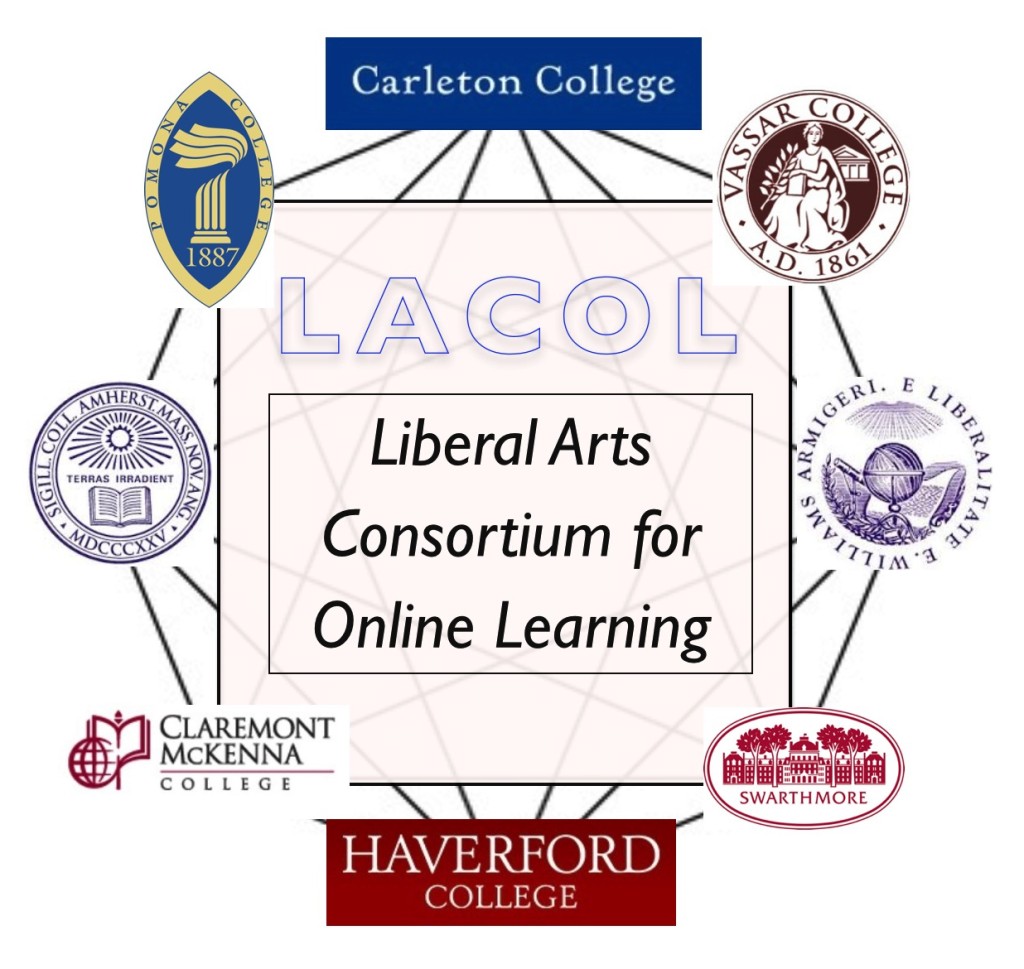During the Spring semester of 2014, I was named the founding co-director of the Liberal Arts Consortium on Online Learning (LACOL) with Andrea Nixon of Carleton College. The goal of LACOL was to enable faculty from the best of the US liberal arts colleges to work together to create new online learning models at our consortium campuses. The LACOL Consortium included Amherst College, Carleton College, Claremont McKenna College, Haverford College, Pomona College, Swarthmore College, Vassar College, and Williams College. The website for LACOL now renamed the Liberal Arts Collaborative for Online Innovation, is available at http://lacol.net. It is wonderful that this group is still moving forward and helping institutions innovate in new ways with online learning.
My role was to help launch the consortium before going on academic leave to launch the new Yale-NUS College in Singapore during the Academic Year 2014-15. Our original logo – which I designed – is below!
The presidents and chief academic officers of our institutions established the goals of the LACOL Consortium which included:
- Developing teaching tools that our current and future students want and will expect
- Enabling our faculty to devote more time to intensive interaction with students
- Expansion of individual campus curricula (e.g., broader course offerings)
- Creating “porous classrooms” that will draw in diverse students, faculty, and other voices through online exchanges
- Shared access to greater stores of data about student learning (both processes and outcomes) and the impact of teaching innovations. More broadly, the consortium will promote joint exploration of applications of learning theory.
- Faculty development opportunities
- Improving on-campus learning outcomes in residential settings
My work involved traveling to all eight LACOL campuses to meet with faculty and staff, giving talks about new online learning models, and identifying leaders on each campus during site visits. The goal was to help facilitate new collaborations using technology to enhance learning and teaching on our campuses. In all of these efforts, we proceeded with a sensibility that was true to the unique teaching culture and mission of our liberal arts colleges. Within the campus visits, we gathered faculty and institutional goals, reviewed the range of instruction at the LACOL campuses, gathered literature and research methods, and explored possible funding sources and partnerships with online learning companies.
The efforts culminated in the LACOL conference held on June 1-2, 2014, at Pomona College. This conference brought together teams of faculty and staff from all eight LACOL campuses to work closely together to share expertise in effective learning and teaching methods to identify specific projects for collaboration in the coming academic year. Sample projects might include jointly taught courses, small online modules, and new “flipped” course materials.
For more information on the Liberal Arts Consortium for Online Learning (LACOL), now the Liberal Arts Collaborative for Online Innovation, go to: http://lacol.net

